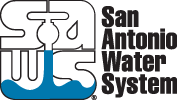Spring is here and that means it’s time to start barbecuing — and getting your irrigation system in good working order.
An irrigation system checkup should be done at least twice a year, once in the spring and again in mid-summer. This is simply a visual inspection to pinpoint any problems with the system — and it’s especially important after the historic freeze event in February.
Here are the most important things to inspect.
- Controller: Change the schedule according to the seasonal requirements of the landscape. Irrigation requirements are lower in the spring and fall than in the summer. Also, install a new 9-volt battery for backup in case of a power outage. The battery location is on the inside of the controller panel. Get to know your controller; if you don’t have a user’s manual, most manufactures provide an online PDF version.
- Rain sensor: All new or existing irrigation controllers within the city limits are required to have a functioning rain sensor. If your controller doesn’t have one, you’ll need to add that to the checkup list. Technology has made it easy to install a wireless rain sensor and they’re available at most home improvement stores. You can test the rain sensor just by holding down the prong while the system is running; if the sensor is working properly the system will stop running.
- Sprinkler heads: Run a one-minute test program on the controller so you can visually examine each zone. Look for broken heads and cracked or clogged nozzles. Watch especially for misaligned heads that overspray onto the sidewalk, driveway or street.
It’s also important to check for high pressure. If you notice a fogging or misting effect while the heads are spraying, it’s because the system is running way over its design pressure. This is a simple fix. Just install a pressure regulator at the irrigation system’s water connection, that is, before the backflow and after the meter.
Finally, after you have completed your quick assessment, call us to schedule a free irrigation consultation at 210-704-7823. We can suggest changes to the system to make it more efficient and effective while reducing consumption.


